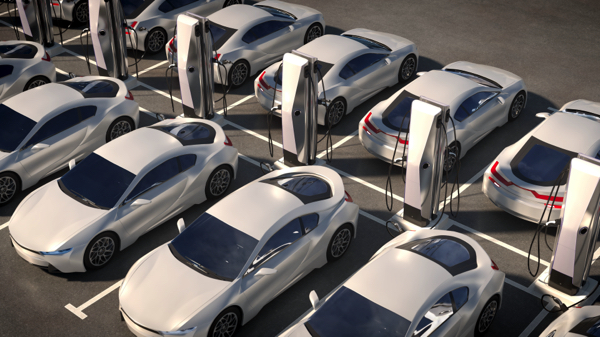
The company said in a statement that its Chinese partner Geely Holding "will continue to provide full operational and financial support to Polestar going forward." As a result, Volvo Cars will no longer provide further funding. The move, Volvo added, will allow the Swedish entity to focus on "developing and concentrating its resources on its own ambitious journey" – including its in-house EVs.
Volvo and Geely established Polestar as a stand-alone EV maker, separate from the Swedish car maker's in-house effort to go electric. Volvo currently owns a 48 percent stake in Polestar, while Geely is also the Swedish company's biggest shareholder.
The companies listed Polestar on the New York City-based Nasdaq in 2022, and Polestar's shares have fallen by 83 percent since then. But following news of Volvo ending funding for the joint venture, the Swedish company's stock surged by more than 30 percent.
Analysts have highlighted how Volvo's 48 percent stake in Polestar has been a drag on its resources, with the company struggling with losses amid the slow consumer uptake of EVs and the increasingly competitive market. Polestar tapped Volvo for around $1 billion in financing while the company works through a turnaround plan. But given this development, Volvo said it will extend the repayment period for the existing convertible loan by 18 months to the end of 2028.
EVs suffering from slow consumer uptake
After a years-long boom in the EV sector, automakers and rental firms alike have begun dialing back on their investments due to slowing interest from consumers. The auto industry's pivot to electric vehicles has been rocked by setbacks this year, just as a flood of new battery-powered models is hitting showrooms. (Related: Automaker bigwigs admit EV sales are in jeopardy.)
French automaker Renault said it has decided to cancel the initial public offering of its electric-car unit Ampere. Ford, meanwhile, has slashed production of its electric F-150 Lightning, a pickup truck that has generated major buzz since its launch. Rental-car firm Hertz has dumped about one-third of its EV rental car fleet, replacing the cars with gas-engine vehicles.
Meanwhile, Volvo CEO Jim Rowan said a separation from Polestar is a "natural evolution." He added that now is the right time for Volvo to reduce its shareholding and for Polestar to look for alternative funding.
"We remain firm on our ambition to report an earnings [before interest and taxes] margin about eight percent for 2026, and now do so based on expected revenues [of] between 550 billion Swedish kronor ($52.03 billion) and 600 billion Swedish kronor ($56.76 billion)," said Rowan. "By the end of 2026, this calculates to a revenue compound annual growth rate of 11 percent to 15 percent from 2023 to 2026."
Volvo also posted a rise in revenue for the fourth quarter of 2023, driven by higher volumes. The company also said it expects the growth rate in retail sales to increase this year, as long as there are no major disruptions.
Polestar, on the other hand, reiterated that Volvo "will remain a strategic partner in areas across [research and development], manufacturing, after-sales and commercial." It also confirmed that it had "made significant progress" in building up its business, despite recent hiccups.
Visit FlyingCars.news for more stories about EVs.
Watch Kevin J. Johnston expound on the electric car scam in the video below.
This video is from the KevinJJohnston channel on Brighteon.com.
More related stories:
EV COLLAPSE: Electric vehicle manufacturer Lordstown Motors files for bankruptcy.
Transportation Secretary Buttigieg admits finding reliable EV charging stations is DIFFICULT.
Ford loses billions on electric vehicles, reduces its EV production target.
EV challenges: Electric car charging station’s power usage exceeds that of 280 HOMES.
7 Reasons why the electric vehicle is not ready for mass consumption.
Sources include:
Please contact us for more information.





















